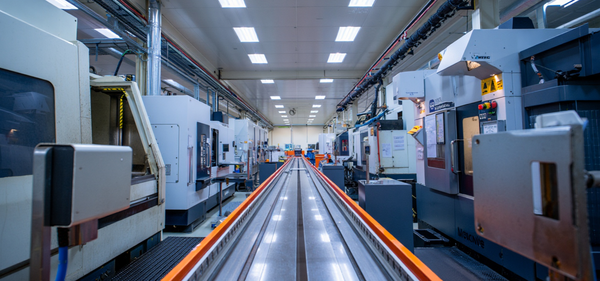DHZC pioneers self-growing cardiac valve technology

Pediatrician PD Dr. Boris Schmitt, senior physician Dr. Peter Kramer, patient Marcus L., and clinic director Prof. Felix Berger (from left to right). © DHZC/Gutbrod
A groundbreaking medical technology developed at Berlin's German Heart Center of Charité (DHZC) is set to transform cardiac care worldwide. For the first time, doctors have successfully implanted a unique heart valve prosthesis made from the patient's own tissue, potentially eliminating the need for repeated surgeries in children with congenital heart defects.
The innovation addresses a critical medical challenge. Worldwide, approximately 160,000 children are born annually with pulmonary valve defects – the valve between the right ventricle and pulmonary artery. In Germany alone, around 800 newborns face this condition each year.
Traditional replacement valves, made from animal tissue, have significant limitations. They deteriorate over time and don't grow with children, requiring replacement every five to ten years through invasive open-heart surgery.
Dr. Boris Schmitt, a pediatric cardiologist at DHZC, has been researching this solution since 2010. His team's breakthrough involves harvesting tissue from the patient's pericardium, shaping it into valve leaflets, and mounting it in a wire frame. The entire procedure is performed via catheter without open-heart surgery, taking just a few hours.
"The decisive advantage lies in using the body's own tissue," explains Dr. Schmitt, according to information from the DHZC press release. "These valves aren't recognized as foreign by the immune system. They remain alive, can regenerate, and adapt to the body's needs."
The technology has been commercialized through Berlin startup GrOwnValve, founded in 2019 by Dr. Boris Schmitt and Jasper Emeis. The company secured €2.5 million in grants and €5.3 million in investment commitments from the EU's EIC Accelerator program.
Two patients have been successfully treated so far. Marcus L., a 34-year-old father and entrepreneur from Saxony, returned to work just four weeks after the procedure. "I feel excellent," he reports.
The technology shows particular promise for developing countries, where cost-effective solutions are crucial. Since the procedure uses the patient's own tissue rather than expensive artificial prostheses, it could provide accessible treatment for thousands of children globally.
Currently approved only for pulmonary valve replacement, the technology may expand to other heart valves after extensive testing, potentially revolutionizing cardiac care worldwide.



